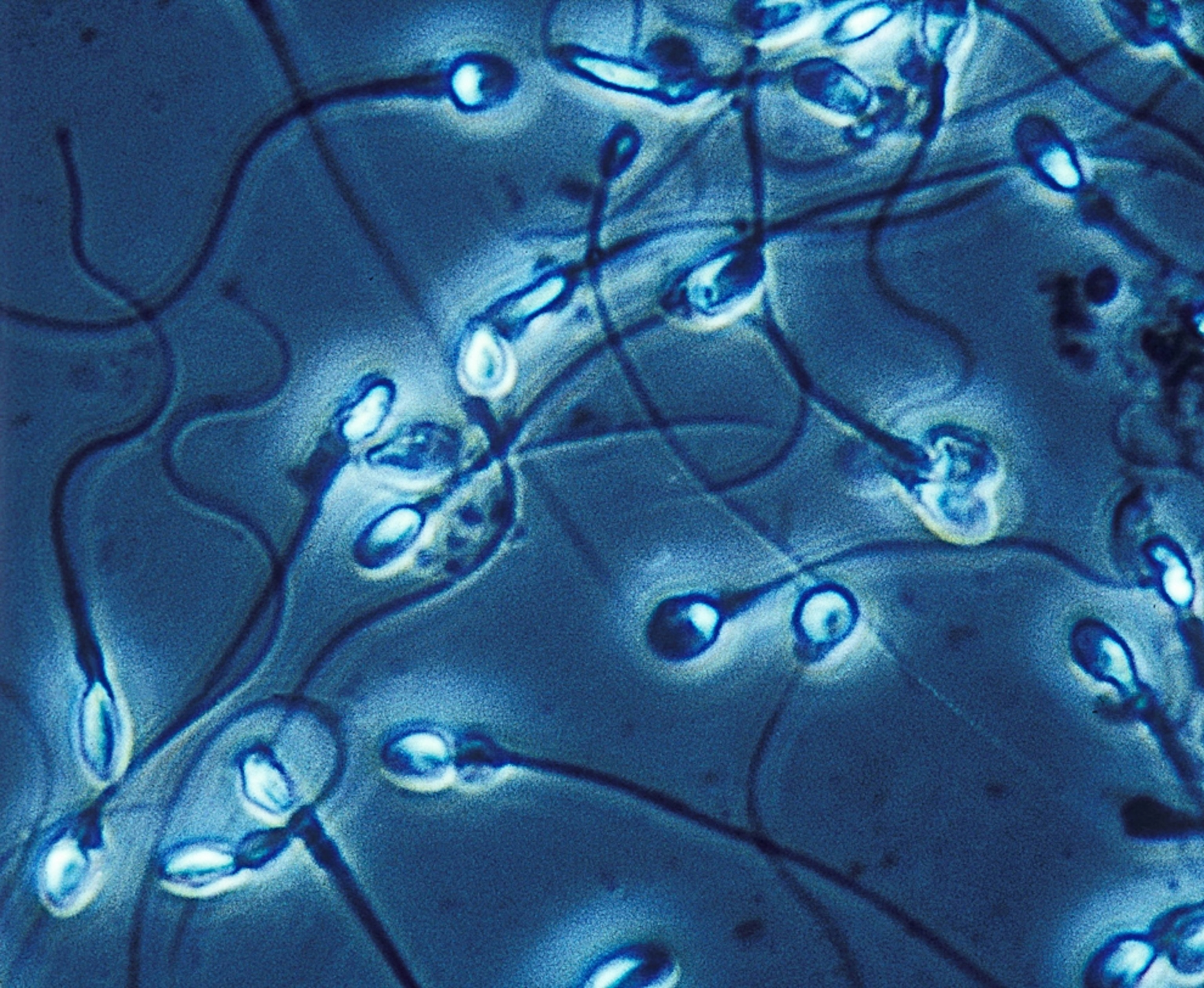
Deep-Voiced Men Have Lower Sperm Counts, Study Says
Masculinity in men may come with a cost: fewer sperm.
Listen up, ladies: The deep timbre of a male voice may sound attractive, but low-voiced men actually tend to have lower sperm counts, a new study says.
Multiple studies have found that women usually favor masculine features, such as prominent jaws, high muscle mass, and low-pitched voices.
The theory is that these traits signal a high-quality mate—for instance, it's been proposed that masculine men generally have more robust amounts of sperm.
But the new research revealed that, while deep voices are attractive to women, low-pitched men actually tended to have lower concentrations of sperm in their ejaculate.
(Find out how a man produces 1,500 sperm a second.)
The finding suggests that men who evolutionarily invest most of their energy into making themselves attractive to females may suffer deficiencies in other areas—in this case, sperm counts.
For instance, the male hormone testosterone—which lowers voice pitch—can thwart sperm production, according to study leader Leigh Simmons, an evolutionary biologist at the University of Western Australia.
Measuring Sperm Counts
For the study, Simmons and colleagues recruited 54 heterosexual men and 30 heterosexual women from a college campus.
The team recorded the voices of the male volunteers, then asked the female volunteers to rate the men's voices in terms of attractiveness and masculinity. Not surprisingly, the women rated deep voices as most alluring.
Each male volunteer then collected a semen sample "in the privacy of their own home and returned it to the lab for analysis," Simmons said via email.
The samples were entered into a computer-assisted sperm-analysis system, or its ability to swim toward its target, the egg—as well as the number of sperm in the semen.
The analysis showed that men with more attractive voices did not have better sperm quality than those with less desirable voices.
In fact, Simmons noted, the sperm from the deep-voiced men were "perfectly motile" and fertile—there were just fewer sperm cells in the ejaculate.
Masculine Traits Evolved for Other Men?
An overriding question in this kind of research is why characteristically masculine traits evolved in people.
"In our evolutionary past, [masculine] men would have had greater reproductive success, leading to sexual dimorphism [differences between men and women] in voices, faces, bodies, etcetera," said Simmons, whose study appeared December 21 in the journal PLoS ONE.
"This is all very well researched in non-human animals—think of elk or peacocks. But we know less about our own evolutionary history."
(Related: "Valentine's Science—Why Gauging Sexiness Is Sophisticated.")
Masculinity is also important in competing with other men, Simmons emphasized. Evolutionary psychologist Laura Dane agreed.
"It's equally likely (if not more likely) that males, in general, have bigger and more muscular bodies as well as lower-pitched voices because they had to compete with other males for dominance and status," Dane, of Douglas College in Canada, said by email.
In fact, a woman's preference for masculinity may be a byproduct of her interest in finding a dominant mate—someone who would offer the best protection for her and her family.
The new study also fits into the idea that masculinity may have a role beyond attracting females, she added, a topic currently under investigation.
"If masculine traits lead to higher dominance/status positions—even at the expense of some level of sperm quality—then the trade-off between masculine traits and fertility makes more sense," she said.